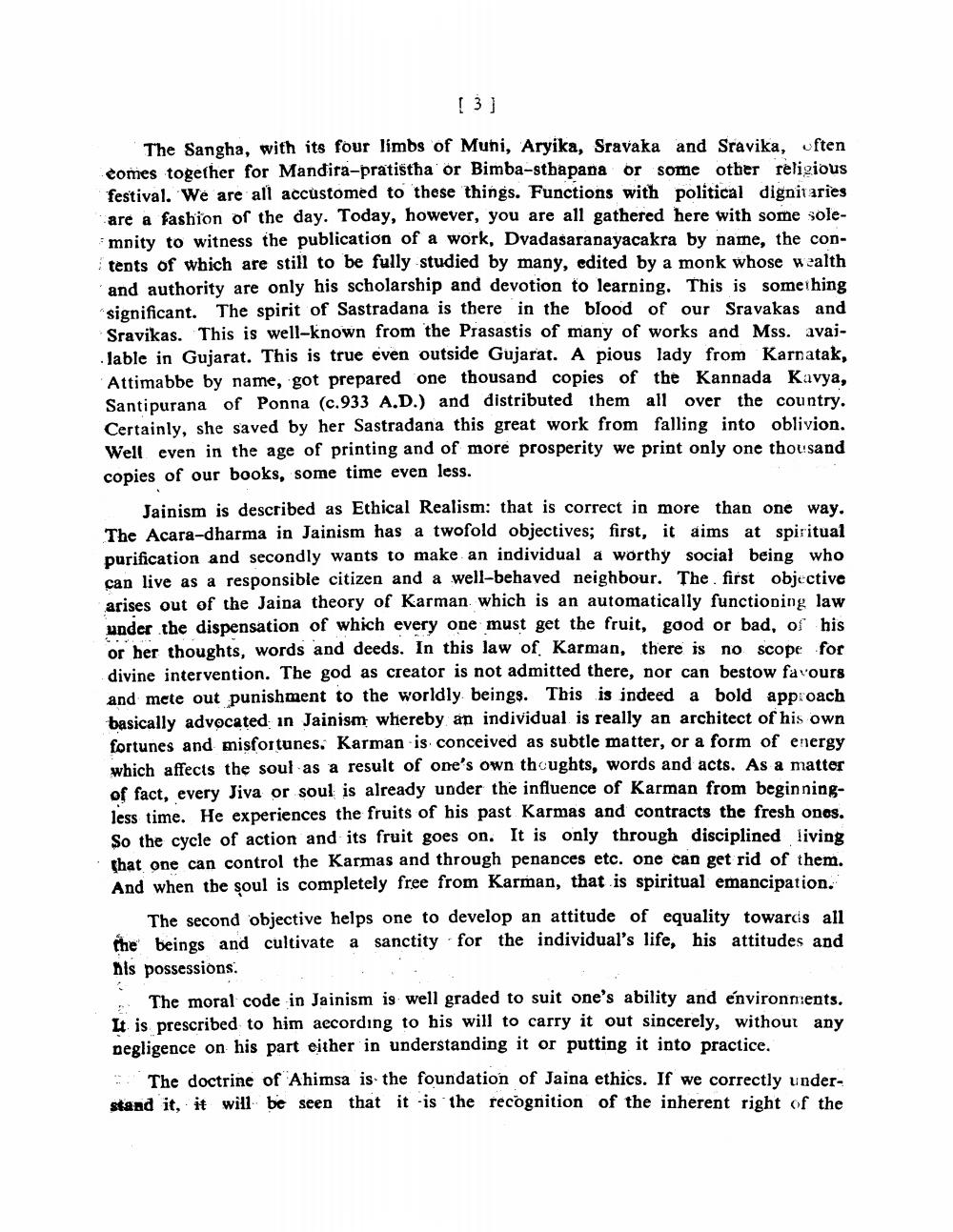________________
[3]
The Sangha, with its four limbs of Muni, Aryika, Sravaka and Sravika, often eomes together for Mandira-pratistha or Bimba-sthapana or some other religious festival. We are all accustomed to these things. Functions with political dignitaries are a fashion of the day. Today, however, you are all gathered here with some solemnity to witness the publication of a work, Dvadasaranayacakra by name, the contents of which are still to be fully studied by many, edited by a monk whose wealth and authority are only his scholarship and devotion to learning. This is something significant. The spirit of Sastradana is there in the blood of our Sravakas and Sravikas. This is well-known from the Prasastis of many of works and Mss. available in Gujarat. This is true even outside Gujarat. A pious lady from Karnatak, Attimabbe by name, got prepared one thousand copies of the Kannada Kavya, Santipurana of Ponna (c.933 A.D.) and distributed them all over the country. Certainly, she saved by her Sastradana this great work from falling into oblivion. Well even in the age of printing and of more prosperity we print only one thousand copies of our books, some time even less.
Jainism is described as Ethical Realism: that is correct in more than one way. The Acara-dharma in Jainism has a twofold objectives; first, it aims at spiritual purification and secondly wants to make an individual a worthy social being who can live as a responsible citizen and a well-behaved neighbour. The first objective arises out of the Jaina theory of Karman which is an automatically functioning law under the dispensation of which every one must get the fruit, good or bad, of his or her thoughts, words and deeds. In this law of Karman, there is no scope for divine intervention. The god as creator is not admitted there, nor can bestow favours and mete out punishment to the worldly beings. This is indeed a bold approach basically advocated in Jainism whereby an individual is really an architect of his own fortunes and misfortunes, Karman is conceived as subtle matter, or a form of energy which affects the soul as a result of one's own thoughts, words and acts. As a matter of fact, every Jiva or soul is already under the influence of Karman from beginningless time. He experiences the fruits of his past Karmas and contracts the fresh onos. So the cycle of action and its fruit goes on. It is only through disciplined living that one can control the Karmas and through penances etc. one can get rid of them. And when the soul is completely free from Karman, that is spiritual emancipation.
The second objective helps one to develop an attitude of equality towards all the beings and cultivate a sanctity for the individual's life, his attitudes and Mis possessions. . The moral code in Jainism is well graded to suit one's ability and environments. It is prescribed to him according to his will to carry it out sincerely, without any negligence on his part either in understanding it or putting it into practice.
The doctrine of Ahimsa is the foundation of Jaina ethics. If we correctly understand it, it will be seen that it is the recognition of the inherent right of the




